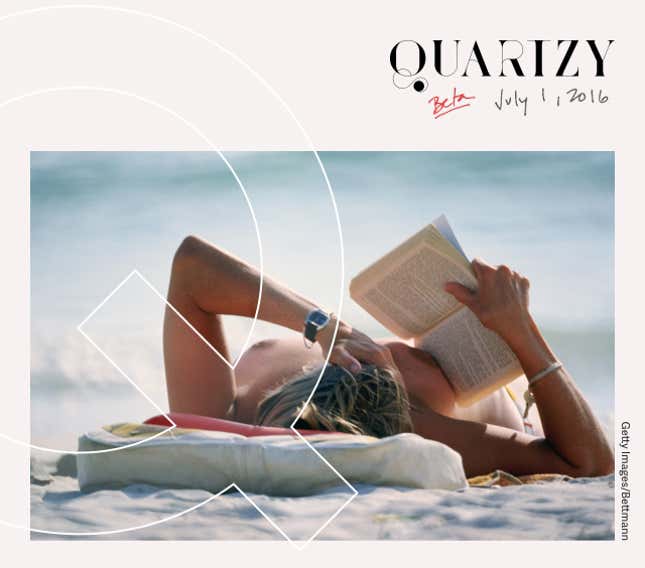
Happy Friday—and July 4th weekend, if you’re in the US!
When I tapped my colleagues at Quartz for their all-time favorite beach reads, one asked: What makes a beach read? It depends on who you ask. To her, it connoted ease of reading—a ”guilty pleasure” sort of story. At the other end of the spectrum, another rhapsodized about reading The Power Broker, Robert Caro’s 1,300-page biography of Robert Moses, over two weeks in the south of France.
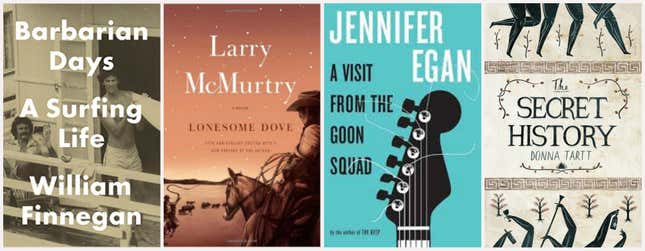
Many talked about books feeling different on vacation: We laugh easier, or get lost in a story. And there’s psychology to back that up. Beach reads are better because our brains are primed for them. Experts say character-driven stories promote empathy—that all-important ability to connect with other people and share their feelings. Also they’re often just good reads. Here are some of our favorite beach books—page-turners, non-fiction, guilty pleasures, and more.
“She often felt, despite the age gap of more than two decades, that she was older than Donald.” Not quite fan fic, but close, Chimamanda Ngozi Adichie’s short story in the New York Times Book Review about the Trump campaign (narrated by a shrewd Melania) would be hilarious if it didn’t feel so real.
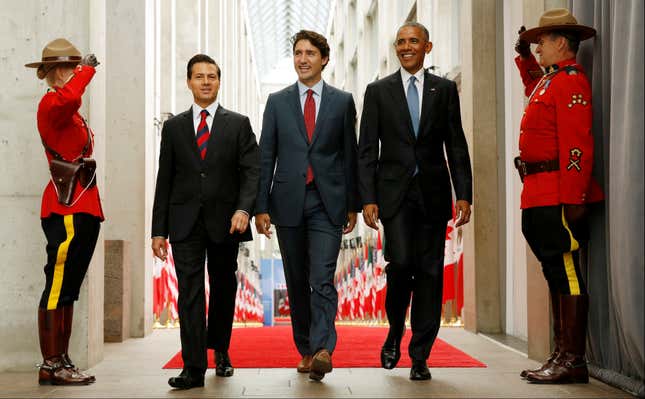
The three amigos summit. North American leaders Enrique Peña Nieto, Justin Trudeau, and Barack Obama discussed Trump, trade, and immigration when they met this week—and the three looked very much like a political boy band.
They also talked about one specific species of migrant: the Monarch butterfly.
Nieto said the once-dwindling Monarchs are on the rebound, thanks to a trilateral program to ensure easy fluttering between Canada, the US, and Mexico. (Seriously!) He said the area occupied by these welcome migrants in Mexico has increased sixfold since 2014. If you like this (true) story, you may consider the novel Flight Behavior, by Barbara Kingsolver, for your next beach read.
Vulnerability is US swimmer Michael Phelps’ new superpower. After a well-documented rough patch—two DUIs, that widely circulated photo with a bong, and a short-circuited attempt at retirement—the most decorated athlete in Olympic history is back. Phelps, who won his first race at the Olympic trials (the 200-meter butterfly) on Wednesday, has credited his six-week stint in rehab with his comeback.

“I was so afraid coming in,” Phelps told The New York Times. “I wasn’t ready to be vulnerable. And then, after a couple of days, I said: ‘My wall is down. Let’s get into this and see what’s going on.’”
Between vulnerable Phelps and crying LeBron, I’m feeling very into sports.

Parents should stop feeling guilty about going to work. Especially moms. Quartz and Retro Report’s new documentary short shows how the media and conservatives used one incorrect, irresponsibly reported statistic—the falsehood that parents were spending 40% less time with their kids than the previous generation—to fuel the pandemic guilt trip known as “the mommy wars.”
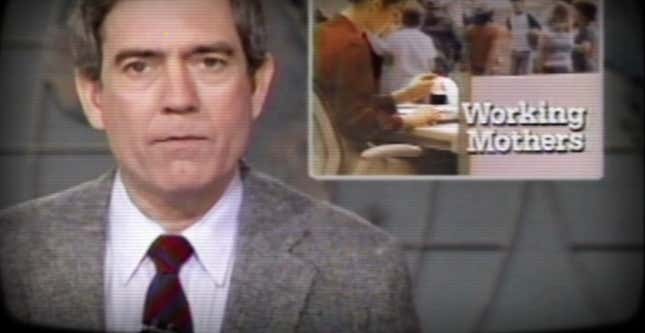
As Quartz senior video producer (and mother of two) Solana Pyne writes, moms today spend just as much time interacting with their kids as moms did in 1975. We shouldn’t need studies to reassure us that it’s the quality, not the quantity, of time we spend with our kids that matters—but the science is there if we do.
Missing Bill Cunningham already. On Saturday we lost the consummate documentarian of New York City fashion, which any New Yorker knows is best observed on the sidewalks. Bill Cunningham’s lens was generous and inclusive, never judgmental.
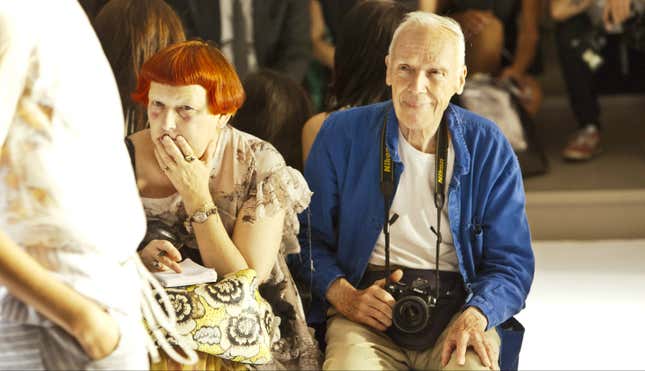
There’s a lot to be learned from the way he worked. That freewheeling bicycle came with an ascetic lifestyle and fierce independence. Quartz’s Aimee Groth explored this in a piece about Cunningham and labor economics, pointing out how problematic it is for citizens to depend on corporations for basic benefits: “In order to cultivate more Cunninghams, workers need more freedoms and freelancers need more protections.”
You don’t have to be interested in fashion, photography, or labor economics to enjoy the documentary about his work, and appreciate what a dear, one-of-a-kind person he was.
Have a great weekend!


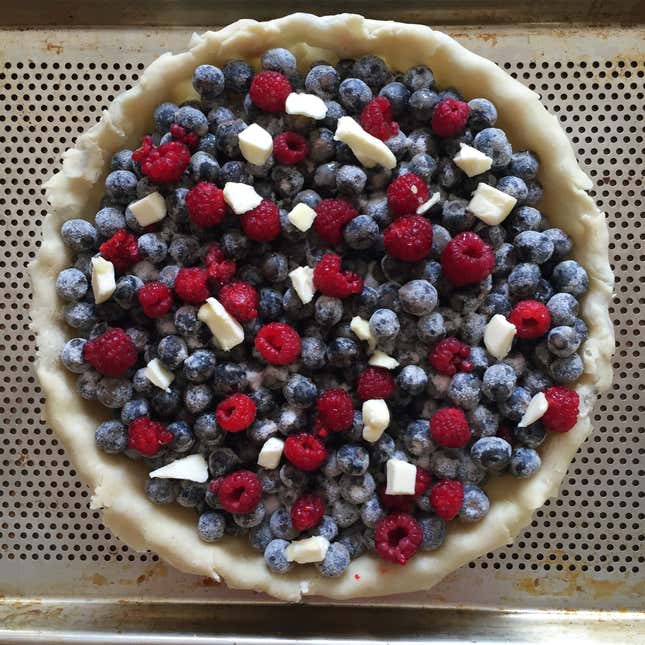
If you are making pie for July 4, there’s a simple way to ensure a perfect crust: Just make twice as much as you need. I used to hate rolling out the dough. It falls apart; it sticks to the counter; then the butter melts. But as Joy the Baker says, ingredients can smell your fear. Here’s how an extra wad of pie dough can keep anxiety away from your pie, and here’s the base recipe I used last year for a blueberry and raspberry pie with a patriotic palette. Happy fourth!